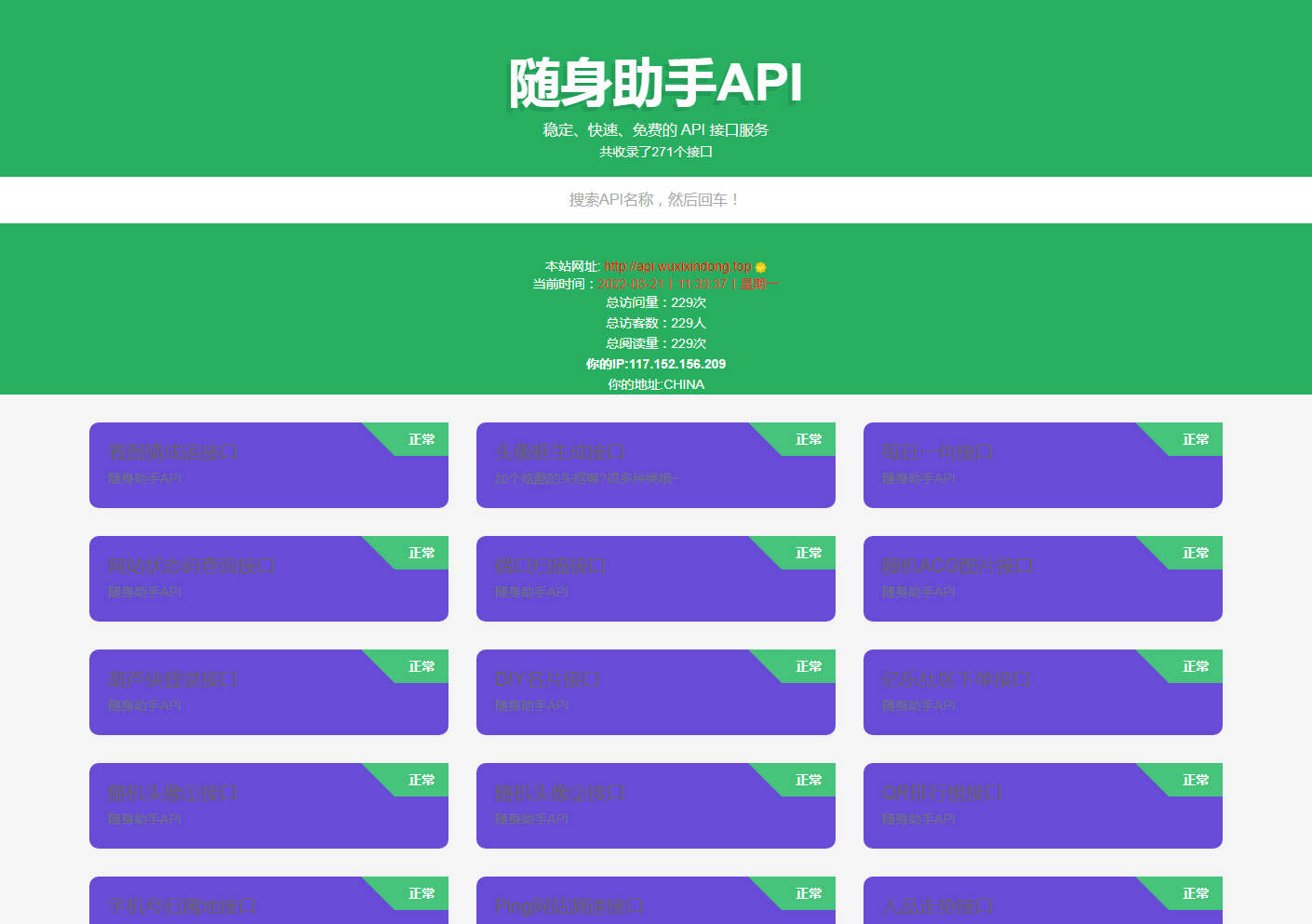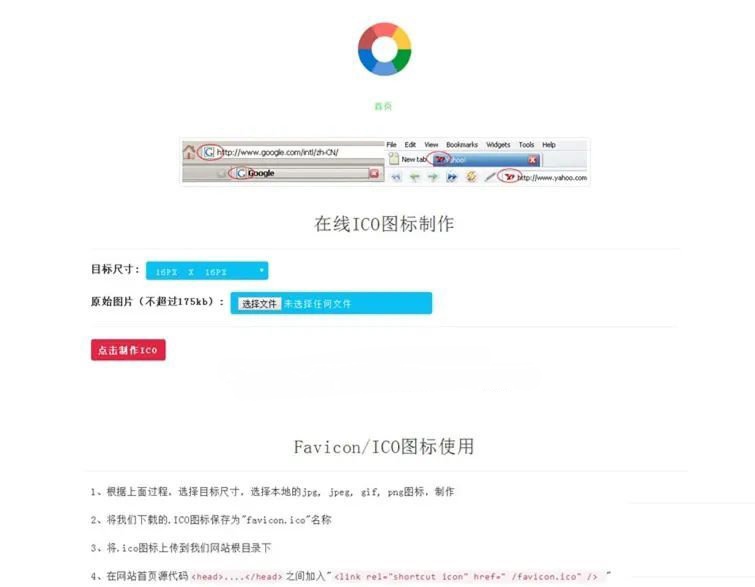初探PHP-Parser
PHP-Parser 是 nikic 用PHP编写的PHP5.2到PHP7.4解析器,其目的是简化静态代码分析和操作。
解析
创建一个解析器实例:
use PhpParser\ParserFactory;
$parser = (new ParserFactory)->create(ParserFactory::PREFER_PHP7);ParserFactory接收以下几个参数:
ParserFactory::PREFER_PHP7:优先解析PHP7,如果PHP7解析失败则将脚本解析成PHP5ParserFactory::PREFER_PHP5:优先解析PHP5,如果PHP5解析失败则将脚本解析成PHP7ParserFactory::ONLY_PHP7:只解析成PHP7ParserFactory::ONLY_PHP5:只解析成PHP5
将PHP脚本解析成抽象语法树(AST)
<?php
use PhpParser\Error;
use PhpParser\ParserFactory;
require 'vendor/autoload.php';
$code = file_get_contents("./test.php");
$parser = (new ParserFactory)->create(ParserFactory::PREFER_PHP7);
try {
$ast = $parser->parse($code);
} catch (Error $error) {
echo "Parse error: {$error->getMessage()}";
}
var_dump($ast);节点转储
如果是用上面的 var_dump 的话显示的 AST 可能会比较乱,那么我们可以使用 NodeDumper 生成一个更加直观的 AST
<?php
use PhpParser\NodeDumper;
$nodeDumper = new NodeDumper;
echo $nodeDumper->dump($stmts);或者我们使用 vendor/bin/php-parse 也是一样的效果
λ vendor/bin/php-parse test.php
====> File test.php:
==> Node dump:
array(
0: Stmt_Expression(
expr: Expr_Assign(
var: Expr_Variable(
name: a
)
expr: Scalar_LNumber(
value: 1
)
)
)
)节点树结构
PHP是一个成熟的脚本语言,它大约有140个不同的节点。但是为了方便使用,将他们分为三类:
PhpParser\Node\Stmts是语句节点,即不返回值且不能出现在表达式中的语言构造。例如,类定义是一个语句,它不返回值,你不能编写类似 func(class {}) 的语句。PhpParser\Node\expr是表达式节点,即返回值的语言构造,因此可以出现在其他表达式中。如:$var (PhpParser\Node\Expr\Variable)和func() (PhpParser\Node\Expr\FuncCall)。PhpParser\Node\Scalars是表示标量值的节点,如”string” (PhpParser\Node\scalar\string)、0 (PhpParser\Node\scalar\LNumber) 或魔术常量,如”FILE” (PhpParser\Node\scalar\MagicConst\FILE) 。所有PhpParser\Node\scalar都是延伸自PhpParser\Node\Expr,因为scalar也是表达式。
需要注意的是 PhpParser\Node\Name 和 PhpParser\Node\Arg 不在以上的节点之中
格式化打印
使用 PhpParser\PrettyPrinter 格式化代码
<?php
use PhpParser\Error;
use PhpParser\ParserFactory;
use PhpParser\PrettyPrinter;
require 'vendor/autoload.php';
$code = file_get_contents('./index.php');
$parser = (new ParserFactory)->create(ParserFactory::PREFER_PHP7);
try {
$ast = $parser->parse($code);
} catch (Error $error) {
echo "Parse error: {$error->getMessage()}";
return;
}
$prettyPrinter = new PrettyPrinter\Standard;
$prettyCode = $prettyPrinter->prettyPrintFile($ast);
echo $prettyCode;节点遍历
使用 PhpParser\NodeTraverser 我们可以遍历每一个节点,举几个简单的例子:解析php中的所有字符串,并输出
<?php
use PhpParser\Error;
use PhpParser\ParserFactory;
use PhpParser\NodeTraverser;
use PhpParser\NodeVisitorAbstract;
use PhpParser\Node;
require 'vendor/autoload.php';
class MyVisitor extends NodeVisitorAbstract
{
public function leaveNode(Node $node)
{
if ($node instanceof Node\Scalar\String_) {
echo $node->value;
}
}
}
$code = file_get_contents("./test.php");
$parser = (new ParserFactory)->create(ParserFactory::PREFER_PHP7);
$traverser = new NodeTraverser;
$traverser->addVisitor(new MyVisitor);
try {
$ast = $parser->parse($code);
$stmts = $traverser->traverse($ast);
} catch (Error $error) {
echo "Parse error: {$error->getMessage()}";
return;
}遍历php中出现的函数以及类中的成员方法
<?php
class MyVisitor extends NodeVisitorAbstract
{
public function leaveNode(Node $node)
{
if (
$node instanceof Node\Expr\FuncCall
|| $node instanceof Node\Stmt\ClassMethod
|| $node instanceof Node\Stmt\Function_
|| $node instanceof Node\Expr\MethodCall
) {
echo $node->name;
}
}
}替换php脚本中函数以及类的成员方法函数名为小写
<?php
class MyVisitor extends NodeVisitorAbstract
{
public function leaveNode(Node $node)
{
if ($node instanceof Node\Expr\FuncCall) {
$node->name->parts[0] = strtolower($node->name->parts[0]);
} elseif ($node instanceof Node\Stmt\ClassMethod) {
$node->name->name = strtolower($node->name->name);
} elseif ($node instanceof Node\Stmt\Function_) {
$node->name->name = strtolower($node->name->name);
} elseif ($node instanceof Node\Expr\MethodCall) {
$node->name->name = strtolower($node->name->name);
}
}
}需要注意的是所有的 visitors 都必须实现 PhpParser\NodeVisitor 接口,该接口定义了如下4个方法:
public function beforeTraverse(array $nodes);
public function enterNode(\PhpParser\Node $node);
public function leaveNode(\PhpParser\Node $node);
public function afterTraverse(array $nodes);beforeTraverse方法在遍历开始之前调用一次,并将其传递给调用遍历器的节点。此方法可用于在遍历之前重置值或准备遍历树。afterTraverse方法与beforeTraverse方法类似,唯一的区别是它只在遍历之后调用一次。- 在每个节点上都调用
enterNode和leaveNode方法,前者在它被输入时,即在它的子节点被遍历之前,后者在它被离开时。 - 这四个方法要么返回更改的节点,要么根本不返回(即null),在这种情况下,当前节点不更改。
PHP代码混淆
下面举两个php混淆的例子,比较简单(郑老板@zsx所说的20分钟内能解密出来的那种),主要是加深一下我们对 PhpParser 使用
phpjiami
大部分混淆都会把代码格式搞得很乱,用 PhpParser\PrettyPrinter 格式化一下代码
<?php
use PhpParser\Error;
use PhpParser\ParserFactory;
use PhpParser\PrettyPrinter;
require 'vendor/autoload.php';
$code = file_get_contents('./test.php');
$parser = (new ParserFactory)->create(ParserFactory::PREFER_PHP7);
try {
$ast = $parser->parse($code);
} catch (Error $error) {
echo "Parse error: {$error->getMessage()}\n";
return;
}
$prettyPrinter = new PrettyPrinter\Standard;
$prettyCode = $prettyPrinter->prettyPrintFile($ast);
file_put_contents('en_test.php', $prettyCode);格式基本能看了
![图片[1] - 初探PHP-Parser和PHP代码混淆 - 易航天地](http://storage.bri6.cn/media/202209061617644.png)
因为函数和变量的乱码让我们之后的调试比较难受,所以简单替换一下混淆的函数和变量
<?php
use PhpParser\Error;
use PhpParser\NodeFinder;
use PhpParser\ParserFactory;
require 'vendor/autoload.php';
$code = file_get_contents("./index_1.php");
$parser = (new ParserFactory)->create(ParserFactory::PREFER_PHP7);
$nodeFinder = new NodeFinder;
try {
$ast = $parser->parse($code);
} catch (Error $error) {
echo "Parse error: {$error->getMessage()}\n";
return;
}
$Funcs = $nodeFinder->findInstanceOf($ast, PhpParser\Node\Stmt\Function_::class);
$map = [];
$v = 0;
foreach ($Funcs as $func) {
$funcname = $func->name->name;
if (!isset($map[$funcname])) {
if (!preg_match('/^[a-z0-9A-Z_]+$/', $funcname)) {
$code = str_replace($funcname, "func" . $v, $code);
$v++;
$map[$funcname] = $v;
}
}
}
$v = 0;
$map = [];
$tokens = token_get_all($code);
foreach ($tokens as $token) {
if ($token[0] === T_VARIABLE) {
if (!isset($map[$token[1]])) {
if (!preg_match('/^\$[a-zA-Z0-9_]+$/', $token[1])) {
$code = str_replace($token[1], '$v' . $v++, $code);
$map[$token[1]] = $v;
}
}
}
}
file_put_contents("index_2.php", $code);变量和函数基本能看了,还是有一些数据是乱码,这个是它自定义函数加密的字符串,大多数都是php内置的函数,我们调试一下就基本能看到了

但是得注意一下,phpjiami有几个反调试的地,在35行的地方打个断点

可以看到4个反调试的点:
第一个点:
当你是以cli运行php的时候就会直接 die() 掉,直接注释掉即可
php_sapi_name()=="cli" ? die() : '';第二个点:
和第一个差不多,也是验证运行环境的,cli模式下没有这些变量索引,直接注释即可
if (!isset($_SERVER["HTTP_HOST"]) && !isset($_SERVER["SERVER_ADDR"]) && !isset($_SERVER["REMOTE_ADDR"])) {
die();
}第三个点:
如果你在 if 语句处停留超过100ms的话就会直接 die 掉,注释即可
$v46 = microtime(true) * 1000;
eval("");
if (microtime(true) * 1000 - $v46 > 100) {
die();
}第四个点:
$51就是整个文件内容,这行是用于加密前的文件对比是否完整,如果不完整则执行$52(),因为$52不存在所以会直接报错退出,而如果对比是完整的话那么就是$53,虽然$53也不存在,但只是抛出一个Warning,所以我们这里也是直接把这行注释掉。
!strpos(func2(substr($v51, func2("???"), func2("???"))), md5(substr($51, func2("??"), func2("???")))) ? $52() : $53;注释完之后我们在return那里打一个断点,可以发现在return那里我们需要解密的文件内容呈现了出来。

解密之后的内容:
<?php
@eval("//Encode by phpjiami.com,Free user.");
// Clear the uploads directory every hour
highlight_file(__FILE__);
$sandbox = "uploads/" . md5("De1CTF2020" . $_SERVER['REMOTE_ADDR']);
@mkdir($sandbox);
@chdir($sandbox);
if ($_POST["submit"]) {
if (($_FILES["file"]["size"] < 2048) && Check()) {
if ($_FILES["file"]["error"] > 0) {
die($_FILES["file"]["error"]);
} else {
$filename = md5($_SERVER['REMOTE_ADDR']) . "_" . $_FILES["file"]["name"];
move_uploaded_file($_FILES["file"]["tmp_name"], $filename);
echo "save in:" . $sandbox . "/" . $filename;
}
} else {
echo "Not Allow!";
}
}
function Check()
{
$BlackExts = array("php");
$ext = explode(".", $_FILES["file"]["name"]);
$exts = trim(end($ext));
$file_content = file_get_contents($_FILES["file"]["tmp_name"]);
if (
!preg_match('/[a-z0-9;~^`&|]/is', $file_content) &&
!in_array($exts, $BlackExts) &&
!preg_match('/\.\./', $_FILES["file"]["name"])
) {
return true;
}
return false;
}
?>
<html>
<head>
<meta charset="utf-8">
<title>upload</title>
</head>
<body>
<form action="index.php" method="post" enctype="multipart/form-data">
<input type="file" name="file" id="file"><br>
<input type="submit" name="submit" value="submit">
</form>
</body>
</html>其实phpjiami加密之后的整个脚本就是解密我们文件的脚本,我们的文件内容被加密之后放在了 ?> 最后面

整个解密过程也比较简单,其中$v51是我们加密之后内容,$v55是解密后的内容。
$v55 = str_rot13(@gzuncompress(func2(substr($v51,-974,$v55))));其中func2是解密函数

最后是拿func2解密之后的代码放在这个 eval 中执行

还有一种比较简单快捷的方法是通过 hook eval 去获取 eval 的参数,因为不涉及 PHP-Parser 所以就不过多展开了。
Enphp混淆
官网:http://enphp.djunny.com/
github: https://github.com/djunny/enphp
使用官方的加密例子:
<?php
include './func_v2.php';
$options = array(
//混淆方法名 1=字母混淆 2=乱码混淆
'ob_function' => 2,
//混淆函数产生变量最大长度
'ob_function_length' => 3,
//混淆函数调用 1=混淆 0=不混淆 或者 array('eval', 'strpos') 为混淆指定方法
'ob_call' => 1,
//随机插入乱码
'insert_mess' => 0,
//混淆函数调用变量产生模式 1=字母混淆 2=乱码混淆
'encode_call' => 2,
//混淆class
'ob_class' => 0,
//混淆变量 方法参数 1=字母混淆 2=乱码混淆
'encode_var' => 2,
//混淆变量最大长度
'encode_var_length' => 5,
//混淆字符串常量 1=字母混淆 2=乱码混淆
'encode_str' => 2,
//混淆字符串常量变量最大长度
'encode_str_length' => 3,
// 混淆html 1=混淆 0=不混淆
'encode_html' => 2,
// 混淆数字 1=混淆为0x00a 0=不混淆
'encode_number' => 1,
// 混淆的字符串 以 gzencode 形式压缩 1=压缩 0=不压缩
'encode_gz' => 0,
// 加换行(增加可阅读性)
'new_line' => 1,
// 移除注释 1=移除 0=保留
'remove_comment' => 1,
// debug
'debug' => 1,
// 重复加密次数,加密次数越多反编译可能性越小,但性能会成倍降低
'deep' => 1,
// PHP 版本
'php' => 7,
);
$file = 'test.php';
$target_file = 'en_test.php';
enphp_file($file, $target_file, $options);加密之后大概长这样子

可以看到,我们的大部分字符串、函数等等都被替换成了类似于 $GLOBALS{乱码}[num] 这种形式,我们将其输出看一下:

可以看到我们原本的脚本中的字符串都在此数组里面,所以我们只要将$GLOBALS{乱码}[num]还原成原来对应的字符串即可。
那么我们如何获取 $GLOBALS{乱码} 数组的内容,很简单,在我们获取AST节点处打断点即可找到相关内容:
![图片[2] - 初探PHP-Parser和PHP代码混淆 - 易航天地](http://storage.bri6.cn/media/202209061636357.png)
$split = $ast[2]->expr->expr->args[0]->value->value;
$all = $ast[2]->expr->expr->args[1]->value->value;
$str = explode($split, $all);
var_dump($str);可以看到,和上面输出的是一样的(如果加密等级不一样则还需要加一层 gzinflate )

然后就是通过AST一个节点一个节点将其替换即可,如果不知道节点类型的同学可以用 $GLOBALS[A][1] ,将其输出出来看一下即可,然后根据节点的类型和数据进行判断即可,如下:
class PhpParser\Node\Expr\ArrayDimFetch#1104 (3) {
public $var =>
class PhpParser\Node\Expr\ArrayDimFetch#1102 (3) {
public $var =>
class PhpParser\Node\Expr\Variable#1099 (2) {
public $name =>
string(7) "GLOBALS"
protected $attributes =>
array(2) {
...
}
}
public $dim =>
class PhpParser\Node\Expr\ConstFetch#1101 (2) {
public $name =>
class PhpParser\Node\Name#1100 (2) {
...
}
protected $attributes =>
array(2) {
...
}
}
protected $attributes =>
array(2) {
'startLine' =>
int(2)
'endLine' =>
int(2)
}
}
public $dim =>
class PhpParser\Node\Scalar\LNumber#1103 (2) {
public $value =>
int(1)
protected $attributes =>
array(3) {
'startLine' =>
int(2)
'endLine' =>
int(2)
'kind' =>
int(10)
}
}
protected $attributes =>
array(2) {
'startLine' =>
int(2)
'endLine' =>
int(2)
}
}根据上面的节点编写脚本
public function leaveNode(Node $node)
{
if (
$node instanceof PhpParser\Node\Expr\ArrayDimFetch
&& $node->var instanceof PhpParser\Node\Expr\ArrayDimFetch
&& $node->var->var instanceof PhpParser\Node\Expr\Variable
&& $node->var->var->name === "GLOBALS"
&& $node->var->dim instanceof PhpParser\Node\Expr\ConstFetch
&& $node->var->dim->name instanceof PhpParser\Node\Name
&& $node->var->dim->name->parts[0] === $this->str
&& $node->dim instanceof PhpParser\Node\Scalar\LNumber
) {
return new PhpParser\Node\Scalar\String_($this->str_arr[$node->dim->value]);
}
return null;
}解出来的内容如下,可以看到大部分已经成功解密出来了
![图片[3] - 初探PHP-Parser和PHP代码混淆 - 易航天地](http://storage.bri6.cn/media/202209061639795.png)
还有就是解密的一部分出现这样语句:('highlight_file')(__FILE__); ,很明显不符合我们平时的写法,将其节点重命名一下
if (
($node instanceof Node\Expr\FuncCall || $node instanceof Node\Expr\StaticCall || $node instanceof Node\Expr\MethodCall) &&
$node->name instanceof Node\Scalar\String_
) {
$node->name = new Node\Name($node->name->value);
}现在看起来就舒服多了
我们分析剩下乱码的部分
可以看到是函数里面的局部变量还是乱码,从第一句可以看出所有的局部变量都是以 & $GLOBALS[乱码] 为基础的,而 & $GLOBALS[乱码] 是我们上面已经找出来的,所以也是将其替换即可。
if (
$node instanceof \PhpParser\Node\Stmt\Expression
&& $node->expr instanceof \PhpParser\Node\Expr\AssignRef
&& $node->expr->var instanceof \PhpParser\Node\Expr\Variable
&& $node->expr->expr instanceof \PhpParser\Node\Expr\ArrayDimFetch
&& $node->expr->expr->var instanceof \PhpParser\Node\Expr\Variable
&& $node->expr->expr->var->name === "GLOBALS"
&& $node->expr->expr->dim instanceof \PhpParser\Node\Expr\ConstFetch
&& $node->expr->expr->dim->name instanceof \PhpParser\Node\Name
&& $node->expr->expr->dim->name->parts != []
) {
$this->Localvar = $node->expr->var->name;
return NodeTraverser::REMOVE_NODE;
} else if (
$node instanceof \PhpParser\Node\Expr\ArrayDimFetch
&& $node->var instanceof \PhpParser\Node\Expr\Variable
&& $node->var->name === $this->Localvar
&& $node->dim instanceof \PhpParser\Node\Scalar\LNumber
) {
return new \PhpParser\Node\Scalar\String_($this->str_arr[$node->dim->value]);
}替换之后,可以看到与 & $GLOBALS[乱码] 有关的已经全部被替换了,只有变量部分是乱码了
替换变量为 $v 这种形式
<?php
function BeautifyVariables($code)
{
$v = 0;
$map = [];
$tokens = token_get_all($code);
foreach ($tokens as $token) {
if ($token[0] === T_VARIABLE) {
if (!isset($map[$token[1]])) {
if (!preg_match('/^\$[a-zA-Z0-9_]+$/', $token[1])) {
$code = str_replace($token[1], '$v' . $v++, $code);
$map[$token[1]] = $v;
}
}
}
}
return $code;
}至此所有代码全部被还原(除了变量名这种不可抗拒因素之外)

还有一部分是没有用的全局变量和常量,手动或者根据AST去进行删除即可,下面贴一下完整解密脚本
<?php
require "./vendor/autoload.php";
use \PhpParser\Error;
use \PhpParser\ParserFactory;
use \PhpParser\NodeTraverser;
use \PhpParser\NodeVisitorAbstract;
use \PhpParser\Node;
use \PhpParser\PrettyPrinter\Standard;
class MyVisitor extends NodeVisitorAbstract
{
public $str;
public $str_arr;
public $Localvar;
public function leaveNode(Node $node)
{
if (
$node instanceof \PhpParser\Node\Expr\ArrayDimFetch
&& $node->var instanceof \PhpParser\Node\Expr\ArrayDimFetch
&& $node->var->var instanceof \PhpParser\Node\Expr\Variable
&& $node->var->var->name === "GLOBALS"
&& $node->var->dim instanceof \PhpParser\Node\Expr\ConstFetch
&& $node->var->dim->name instanceof \PhpParser\Node\Name
&& $node->var->dim->name->parts[0] === $this->str
&& $node->dim instanceof \PhpParser\Node\Scalar\LNumber
) {
return new \PhpParser\Node\Scalar\String_($this->str_arr[$node->dim->value]);
}
if (($node instanceof Node\Expr\FuncCall
|| $node instanceof Node\Expr\StaticCall
|| $node instanceof Node\Expr\MethodCall)
&& $node->name instanceof Node\Scalar\String_
) {
$node->name = new Node\Name($node->name->value);
}
if (
$node instanceof \PhpParser\Node\Stmt\Expression
&& $node->expr instanceof \PhpParser\Node\Expr\AssignRef
&& $node->expr->var instanceof \PhpParser\Node\Expr\Variable
&& $node->expr->expr instanceof \PhpParser\Node\Expr\ArrayDimFetch
&& $node->expr->expr->var instanceof \PhpParser\Node\Expr\Variable
&& $node->expr->expr->var->name === "GLOBALS"
&& $node->expr->expr->dim instanceof \PhpParser\Node\Expr\ConstFetch
&& $node->expr->expr->dim->name instanceof \PhpParser\Node\Name
&& $node->expr->expr->dim->name->parts != []
) {
$this->Localvar = $node->expr->var->name;
return NodeTraverser::REMOVE_NODE;
} else if (
$node instanceof \PhpParser\Node\Expr\ArrayDimFetch
&& $node->var instanceof \PhpParser\Node\Expr\Variable
&& $node->var->name === $this->Localvar
&& $node->dim instanceof \PhpParser\Node\Scalar\LNumber
) {
return new \PhpParser\Node\Scalar\String_($this->str_arr[$node->dim->value]);
}
return null;
}
}
function BeautifyVariables($code)
{
$v = 0;
$map = [];
$tokens = token_get_all($code);
foreach ($tokens as $token) {
if ($token[0] === T_VARIABLE) {
if (!isset($map[$token[1]])) {
if (!preg_match('/^\$[a-zA-Z0-9_]+$/', $token[1])) {
$code = str_replace($token[1], '$v' . $v++, $code);
$map[$token[1]] = $v;
}
}
}
}
return $code;
}
$code = file_get_contents("./en_test.php");
$parser = (new ParserFactory)->create(ParserFactory::PREFER_PHP7);
try {
$ast = $parser->parse($code);
} catch (Error $error) {
echo "Parse error: {$error->getMessage()}\n";
return;
}
var_dump($ast);
$split = $ast[2]->expr->expr->args[0]->value->value;
$all = $ast[2]->expr->expr->args[1]->value->value;
$str1 = $ast[2]->expr->var->dim->name->parts[0];
$str_arr = explode($split, $all);
$visitor = new MyVisitor;
$visitor->str = $str1;
$visitor->str_arr = $str_arr;
$traverser = new NodeTraverser;
$traverser->addVisitor($visitor);
$stmts = $traverser->traverse($ast);
$prettyPrinter = new Standard;
$code = $prettyPrinter->prettyPrintFile($stmts);
$code = BeautifyVariables($code);
echo $code;注:需要注意的是 enphp 使用的全局变量不一定是 GLOBALS ,也可能是 _SERVER、_GET 等等,根据具体情况进行判断,还有就是加密等级不同对应的解密方式也是不同的,不过其中的思想都是大同小异
参考
https://www.52pojie.cn/thread-693641-1-1.html
https://www.52pojie.cn/thread-883976-1-1.html
https://github.com/nikic/PHP-Parser/blob/master/doc/2_Usage_of_basic_components.markdown
















暂无评论内容